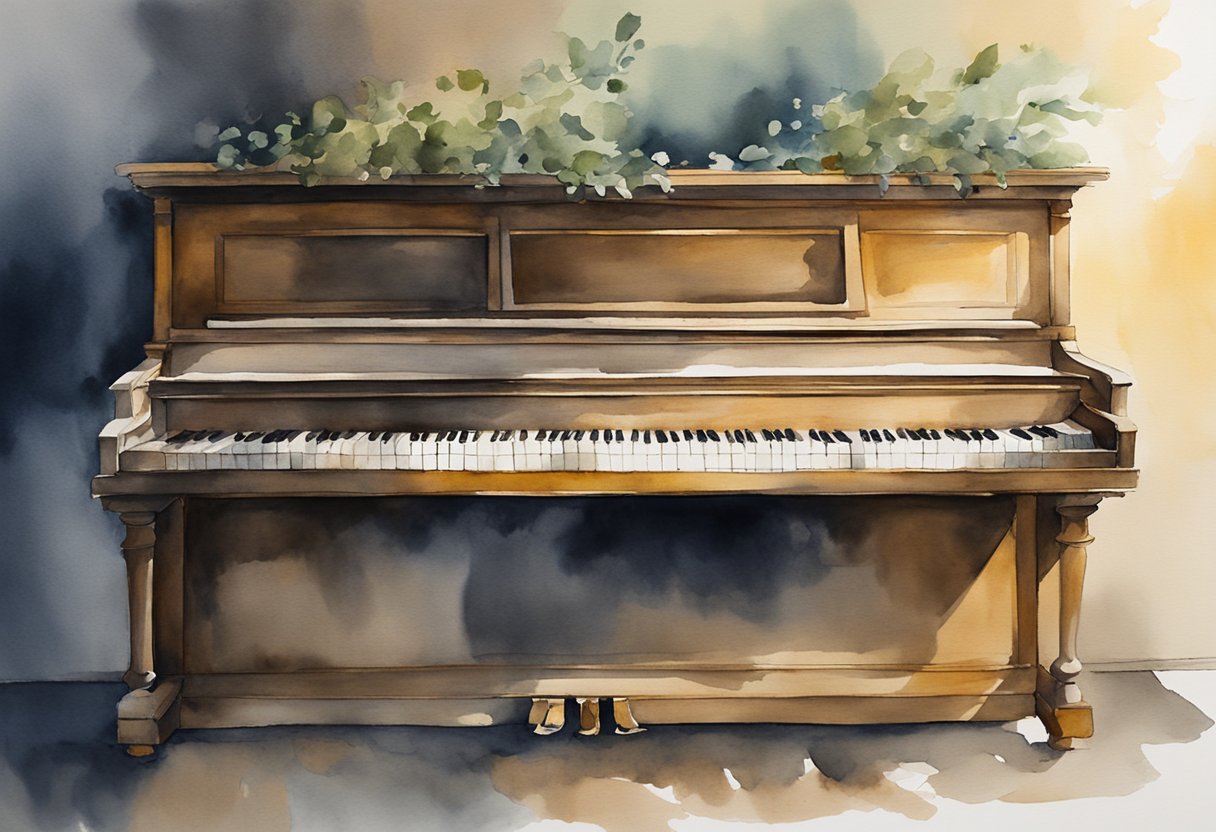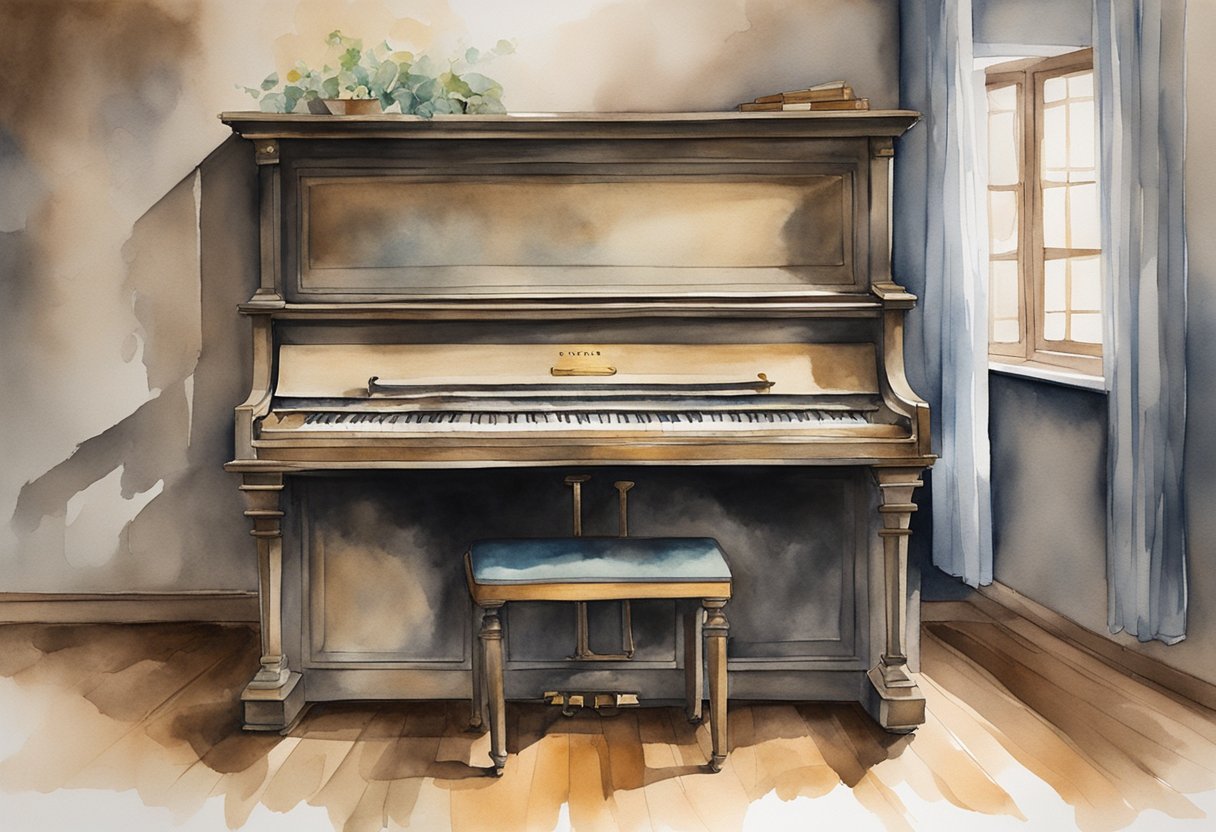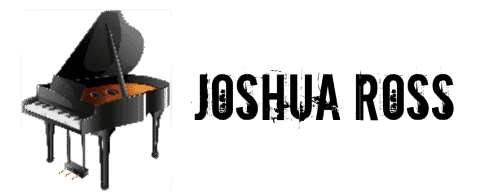As an Amazon Associate I earn from qualifying purchases.
Pianos do not necessarily get better with age, but the situation is a bit more nuanced than a simple yes or no. As an instrument built of organic materials, a piano’s sound and action can change over time; these changes can be positive or negative depending on various factors.
For instance, I’ve observed that high-quality pianos can indeed develop a richer, more complex sound after an initial “break-in” period, much like a fine stringed instrument might. However, it’s also true that as pianos age, components such as the strings, action, and felt deteriorate, potentially compromising both sound and playability.
Want to Learn Piano?Click Here

Your piano’s journey through time may see the warm patina of the wood deepen and the initially bright tone mellow into something more rounded, much like a well-aged wine. Yet, without meticulous care and maintenance, the aging process can also lead to less responsiveness in the action or even a tinny, less dynamic sound.
Critical elements, such as the hammers and strings, can wear out, making once vibrant tones sound thin or even out of tune. This isn’t mere hearsay; many colleagues who are concert pianists tend to favor newer instruments for their reliability and tonal brilliance when performing demanding pieces.
Ultimately, the quality of a piano as it ages relies heavily on the make, environmental conditions, frequency of use, and upkeep. While some older pianos may be valued for their antique craftsmanship and the history they carry, they often require substantial restoration to meet the demands of today’s players.
The Aging Process of Pianos

When you’re considering the longevity of a piano, imagine it as a living entity that responds to the environment, care, and use over time. Like fine wine, some aspects of a piano may improve with time, but without the right care and service, its performance will inevitably decline.
Material Changes Over Time
The wood in your piano, including the soundboard, rim, and case, experiences changes in tension due to humidity and temperature variations. The aging of wood can lead to a more mature sound, but fluctuations can also cause cracking and warping.
The strings of a piano also lose their resilience, impacting the overall sound quality. Consistent conditions can help preserve these materials longer.
The Impact of Care and Maintenance
Regular maintenance by a professional technician is crucial to keep an old piano in good condition. They can adjust the action, which includes the hammers and keys, to ensure the best touch and tone. A high-quality piano benefits significantly from this, as regular maintenance can mitigate the natural wear and prevent dust buildup.
Restoration and Repairs
When parts like the damper felt and moving parts reach the end of their lifespan, restoration and repairs become necessary.
This can be an expense, but it’s often worth it to restore the instrument’s original quality of sound and touch, especially for a high-quality piano. Restoring old pianos can bring them back to life and is less about making them better with age, but rather maintaining their existing quality.
Perception of Tone and Touch
Your personal preference plays a significant role in how you perceive the tone and touch of a piano over time. A well-aged plate may contribute to a richer sound, but the action needs to feel responsive for you to enjoy playing.
The tactile feedback and the auditory response from an old piano might connect with you in a way that a new piano does not, which is why some pianists seek out vintage instruments.
Evaluating the Worth of Aging Pianos
When considering the purchase of an older piano, you’re weighing the charm and potential of an instrument with its actual performance and value over time. Let’s explore what factors affect the worth of aging pianos and how to make an informed choice.
Market Value and Brand Influence
Market value for aging pianos can vary greatly, influenced by brand recognition. For instance, a Steinway or Chickering holds value well, due to the manufacturers’ reputation for quality over generations. Remember, the serial number can often reveal the age of the piano, which in turn can give insights into its market value.
Choosing Between New and Used Pianos
Deciding between new pianos and used ones comes down to personal preference and intended use. A brand new piano comes with the latest design and technology, while a well-maintained, used piano might offer character and a more inviting price point.
Identifying High-Quality Pianos
To identify a high-quality piano, look for signs of expert craftsmanship such as the condition of hammers, strings, and soundboard. A piano that has been lovingly restored could be a treasure to own and play, even if it’s not in its prime. As a pianist, you’ll want to feel connected to your instrument, so the feel and response of the keys might just outweigh the age factor.
Hello & thanks for stopping by! I’m a professional concert pianist and piano instructor. In the United States, I’ve given successful performances in several places including New York, Florida, Connecticut, & New Jersey, I have also performed internationally in Italy and made my Carnegie Hall debut in 2014. I enjoy blogging about the piano, the art of performance, general music, current events and the latest in music production.
